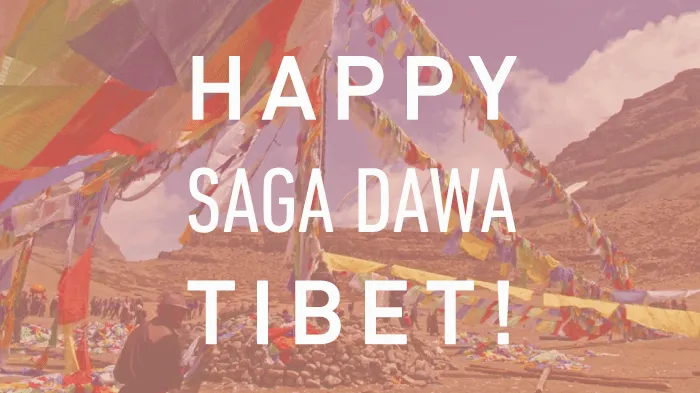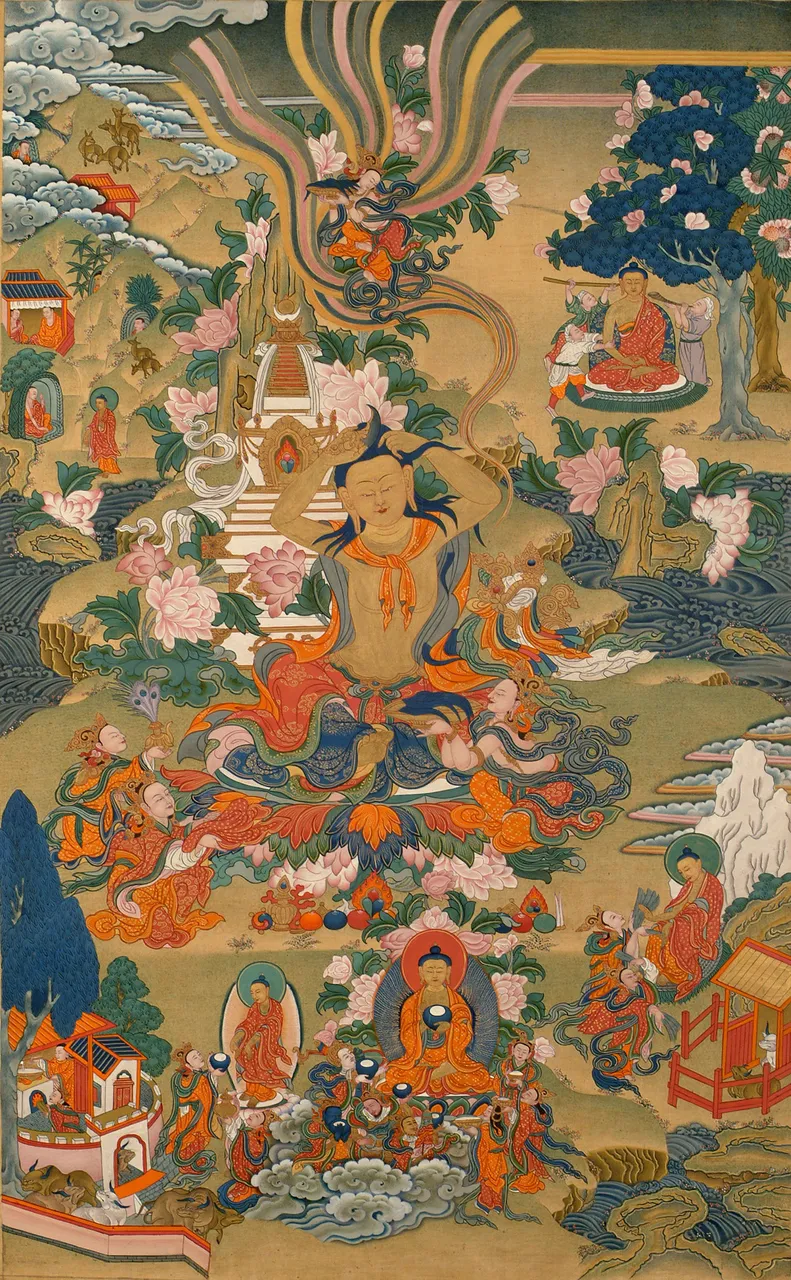Saga Dawa, special day to practice equanimity / Saga Dawa, día especial para practicar la ecuanimidad 🙏🌕🌈

Saga Dawa or Vesak, is celebrated in the fourth month of the Tibetan lunar calendar and is the most sacred for those of us who practice Buddhism, also called the month of merits. The central day of the same is Saga Dawa Düchen and the birth, enlightenment and paranirvana of Lord Buddha Siddharta Gautama or Buddha Sakiamuni is celebrated.
Saga Dawa o Vesak, se celebra en el cuarto mes del calendario lunar tibetano y es el más sagrado para los que practicamos budismo, también llamado el mes de los méritos. El día central del mismo es Saga Dawa Düchen y se celebra el nacimiento, iluminación y paranirvana del Señor Buda Siddharta Gautama o Buda Sakiamuni.

Buddhism practitioners make the most of this month to make offerings, accumulate mantras, and especially meditate on the awakening factors. Precisely this year it was celebrated on May 26, and after making the offering I started to review Hive, to read, and I found a weekly contest organized by @caluman, I loved the topic so this is my post for the contest.
Los practicantes de budismo aprovechamos al máximo este mes para realizar ofrendas, acumulación de mantras, y sobre todo meditar en los factores del despertar. Precisamente este año se celebró el 26 de mayo, y luego de realizar la ofrenda me puse a revisar Hive, a leer, y me encontré con un concurso semanal que organiza @caluman, me encantó el tema así que este es mi post para el concurso.
For Buddhists, Equanimity (upekkhā in Pali), is the door of compassion; it develops from concentration (Samādhi) and is reached when this concentration is brought to its fullness, to its perfection. Equanimity is peace in the midst of the storm and a concentrated spirit is necessary, directed to the present moment, deeply committed; this is how balance and harmony of spirit arise.
Para los budistas la Ecuanimidad (upekkhā en Pali), es la puerta de la compasión; se desarrolla desde la concentración (Samādhi) y se alcanza al ser llevada esta concentración a su plenitud, a su perfección. La ecuanimidad es la paz en medio de la tormenta y es necesario un espíritu concentrado, dirigido al instante presente, comprometido profundamente; así surgen el equilibrio y la armonía de espíritu.

Equanimity in Tibetan
Many confuse the term upekkhā with indifference, it really is like spiritual virtue in the face of everyday life, mental harmony, it is unshakable freedom of the mind. Equanimity creates inner balance that is not affected by gain or loss, praise or criticism, pleasure or pain. Equanimity is indifference to the demands of the ego, due to its attachments to pleasure and social position, instead of guiding the welfare of other beings.
Muchos confunden el término upekkhā con indiferencia, realmente es como la virtud espiritual frente a lo cotidiano, armonía mental, es libertad inconmovible de la mente. La ecuanimidad crea equilibrio interior que no es afectado por ganancia o perdida, alabanzas o críticas, placer o dolor. Ecuanimidad es indiferencia frente a las demandas del ego, por sus apegos al placer y a la posición social, en vez de orientarnos el bienestar de los demás seres.

In this Vesak I wish that all beings find happiness and the cause of happiness. May they be free from suffering and from the cause of suffering, may they not be separated from the perfect happiness that is free from suffering. May they remain in the state of equanimity free from attachment or aversion to those near and far.
En este Vesak deseo que todos los seres encuentren la felicidad y la causa de la felicidad. Que estén libres de sufrimiento y de la causa del sufrimiento, que no se separen de la felicidad perfecta que es libre de sufrimiento. Que permanezcan en el estado de ecuanimidad libres de apego o aversión por aquellos cercanos y lejanos.

